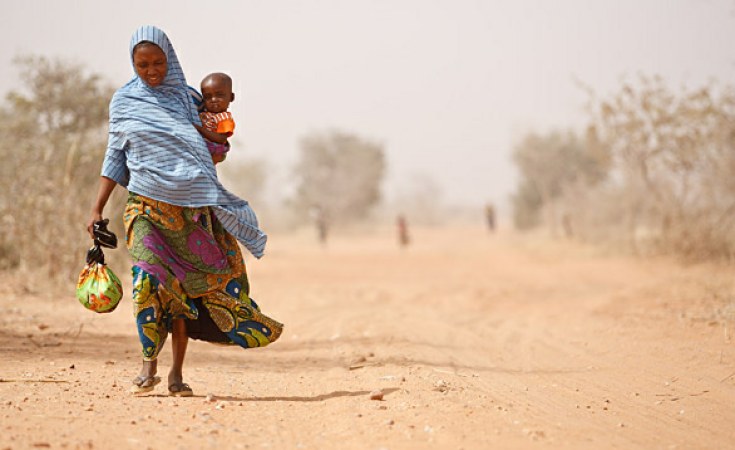With funds falling far short of targets, charities will struggle to help families and children in Mali.
UNICEF has said that it has only received 28% of its $58 million emergency appeal to help people in Mali. The charity is providing nutrition, water, vaccinations and medicine to children suffering from the conflict and poverty.
Fighting in Northern Mali has caused hunger and displacement for many thousands of families. Drought has also struck throughout Mali intensifying hunger and poverty.
UNICEF states, "Across the northern part of Mali, the global malnutrition rate is among the highest in the country. Schools have been closed for much of the year. Tens of thousands of families have been uprooted from their homes and exposed to violence and distress. Cholera has surfaced along the Niger River. Community coping mechanisms are being stretched to the extreme and risk failure, with negative consequences for children and women."
The chaos has also placed children at risk of recruitment into rebel forces. UNICEF says it "calls on all parties to the conflict, leaders and community members to ensure that children are protected from the harmful impact of armed conflict and do not participate in hostilities"
Families in Mali normally rely on stocks of food to help them through the summer lean season between harvests. These stocks would come from previous harvests. However, the drought has meant that there are far less food reserves to draw upon. Some reports show that families are resorting to eating cooked leaves. When drought hits families who are already living in poverty the impact is devastating.
Save the Children is working to rescue the most vulnerable in this hunger crisis. The charity is, however, also facing low funding and has not yet achieved 50% of the fundraising goal for Mali.
Meanwhile the peak of the "lean season" is here, with farmers and their families struggling to get food. Katie Seaborne, a Save the Children officer in Mali says, "I met with a woman called Mamou Traore in Diema of Kayes region in Southern Mali just on Thursday who explained how her husband's crops lasted just one month. They have been trying to eke out a living ever since. Her four-month-old baby girl Aissaita is now malnourished."
Save the Children is supporting health centres, which are treating malnutrition cases in children like Aissaita. Without funding it will be difficult for Save the Children to carry on this work.
William Lambers is the author of Ending World Hunger: School Lunches for Kids Around the World. His other books include The Roadmap to End Global Hunger, Nuclear Weapons, The Road to Peace: From the Disarming of the Great Lakes to the Nuclear Test Ban Treaty, and


